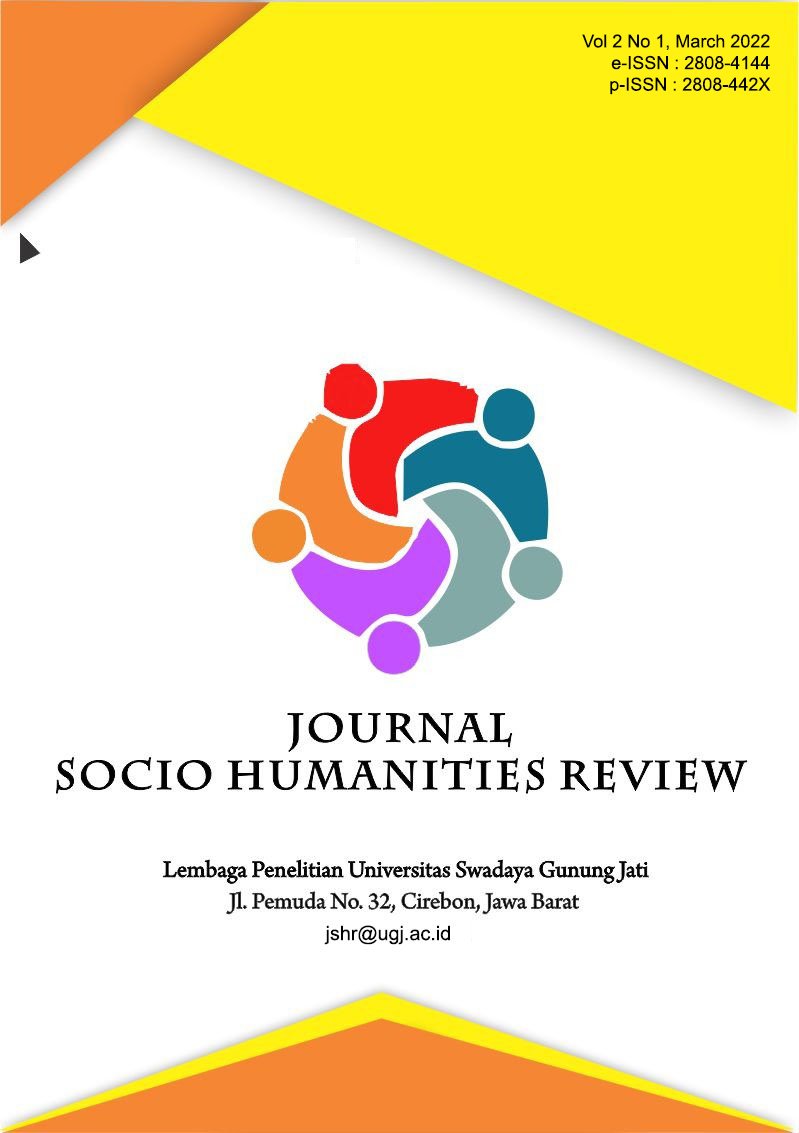PUBLIC RELATIONS STRATEGY THROUGH CORPORATE SOCIAL RESPONSIBILITY (CSR) IN PARTNERSHIP AND ENVIRONMENTAL DEVELOPMENT (PKBL) PROGRAM
DOI:
https://doi.org/10.33603/jshr.v2i1.6830Kata Kunci:
Public Relations Strategy, Partnership and Community Development Program, Corporate Social ResponsibilityAbstrak
Forests are biological natural resources that have great benefits. Inside it. The research objectives include 1) Public Relations Strategy through Corporate Social Responsibility (CSR) in the Partnership and Community Development Program (PKBL) at Perum Perhutani KPH Majalengka 2) What are the Barriers to the Public Relations Strategy and 3) what are the efforts made by Public Relations in dealing with obstacles that happened. The researcher uses a qualitative descriptive research method, the selection of informants uses the Purpose Sampling Technique. The results of this study indicate that the implementation of the Public Relations Strategy through CSR in the Partnership and Community Development Program (PKBL) at Perum Perhutani KPH Majalengka has been implemented but in its implementation it has not been able to be carried out optimally. it can be seen from: 1). Public Relations Strategy through CSR in PKBL at Perum Perhutani KPH Majalengka that the community complains about solving problems that often arise to be reviewed and rechecked by Perhutani and the delivery of communications that have not been properly realized to stakeholders, 2). Barriers to the Public Relations Strategy through CSR in PKBL at Perum Perhutani KPH Majalengka there is a lack of good communication management in the form of miscommunication between work units in problem solving 3). Public Relations Strategy Efforts through CSR in PKBL at Perum Perhutani KPH Majalengka through meetings and coordinating with each other between work units as well as making agendas and reviewing them so that they are more focused in accordance with more mature planning.
Referensi
Ardianto, Soleh Soemirat dan Elvinaro. Dasar- Dasar Public Relations . Bandung: Pt Remaja Rosdakarya, 2015.
Butterick, Keith. Pengantar Public Relations Teori dan Praktek. Jakarta: Pt RajaGrafindo Persada, 2014.
Catlip, Scott M. Effective Public Relations. Jakarta: Kencana Prenadamedia Group, 2016.
Effendy, Onong Uchjana. Human Relations dan Pablic Relations. Bandung: Mandar Maju, 1993.
—. Ilmu Komunikasi Teori dan Praktek. Bandung: Pt Remaja Rosdakarya, 2017.
kriyantono, Rachmat. Teknik Praktis Riset Komunikasi. Jakarta: Kencana, 2014.
Mardikanto, Totok. CSR Corporate Social Responsibility Tanggungjawab Sosial Korporasi. Bandung: Alfabeta, 2018.
Moleong, Lexy J. Motodologi Penelitian Kualitatif. Bandung: Pt Remaja Rosdakarya, 2016.
Morissan. Manajemen Public Relations. jakarta: Prenada Media Group, 2010.
Rakhmat, Jalaluddin. Metode Penelitian Komunikasi. Bandung: Simbiosa Rekatama Media, 2017.
Ruslan, Rosady. Manajemen Public Relations & Media Komunikasi. Jakarta: Pt. RajaGrafindo Persada, 2018.
—. Metode Penelitian Public Relations dan Komunikasi. Jakarta: Pt RajaGrafindo Persada, 2017.
Sugiyono. Memahami Penelitian Kualitatif . Bandung: Alfabeta, 2016.
sugiyono. Metode Penelitian Kuantitatif, Kualitatif dan R&D. Bandung: Alfabeta, 2017.
Wibisono, Yusuf. Membedah Konsep & Aplikasi CSR Corporate Social Responsibility. Gresik: Fascho Publishing, 2007.
Unduhan
Diterbitkan
Terbitan
Bagian
Lisensi
Authors who publish with this journal agree to the following terms:
- Authors retain copyright and grant the journal right of first publication with the work simultaneously licensed under a Creative Commons Attribution License that allows others to share the work with an acknowledgement of the work's authorship and initial publication in this journal.
- Authors are able to enter into separate, additional contractual arrangements for the non-exclusive distribution of the journal's published version of the work (e.g., post it to an institutional repository or publish it in a book), with an acknowledgement of its initial publication in this journal.
- Authors are permitted and encouraged to post their work online (e.g., in institutional repositories or on their website) prior to and during the submission process, as it can lead to productive exchanges, as well as earlier and greater citation of published work.
JSHR (Journal Socio Humanities Review) is licensed under a Creative Commons Attribution-NonCommercial 4.0 International License.


